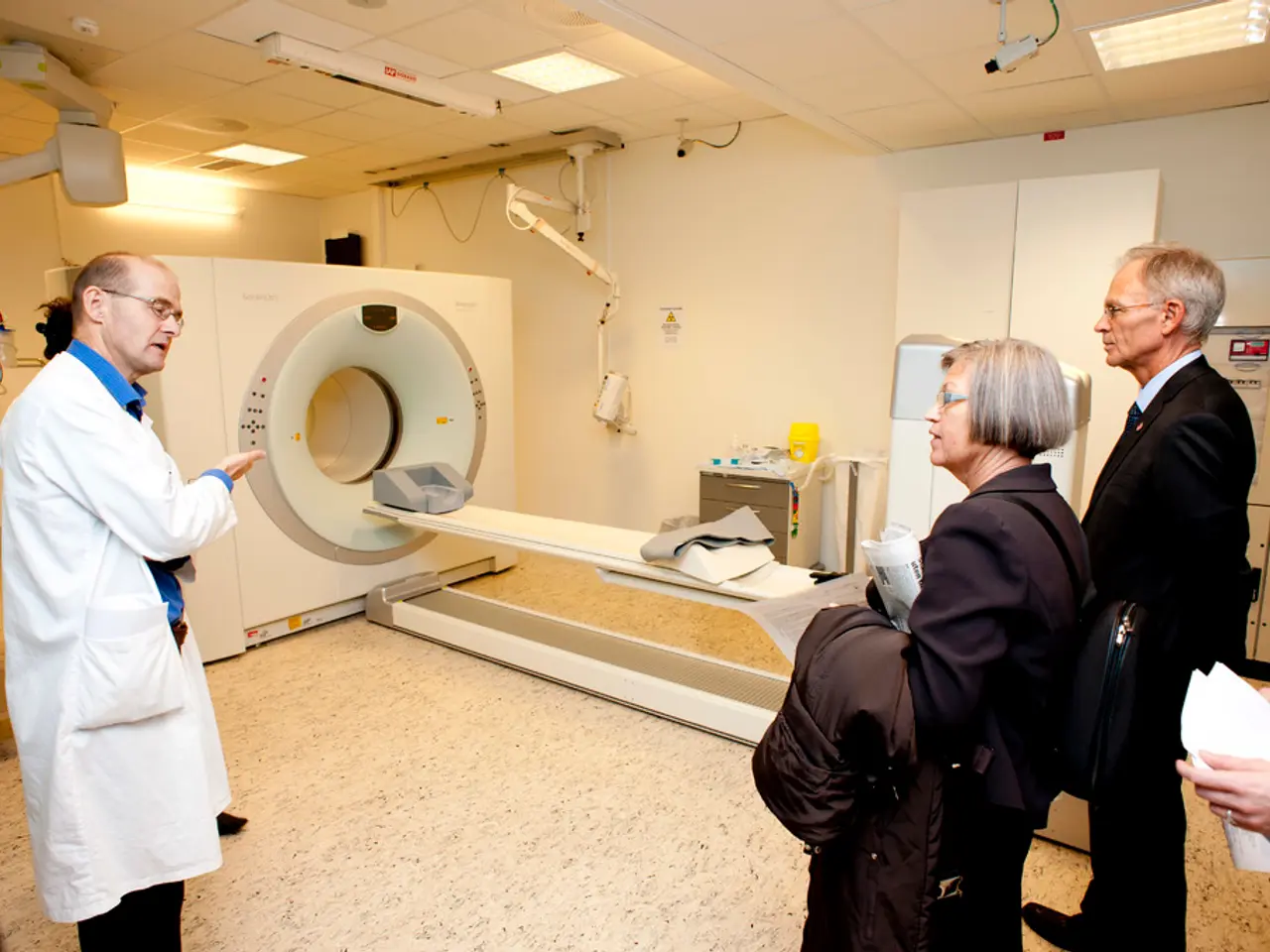Digital health tool returns time to patients amid a surge of complex medical cases, claims Scottish General Practitioner.
In a significant development for the UK's primary healthcare sector, voice recognition tools like Lexacom are proving to be a game-changer, particularly for dyslexic GPs and those with poor typing skills. These tools are not just aiding in overcoming traditional documentation challenges, but are also playing a crucial role in reducing the overall administrative burden.
Dr. Mark Taylor, a GP in Inverness, is one such advocate for these innovative technologies. With 28 years of experience at Kingsmills Medical Practice, which serves around 10,000 patients, he has first-hand experience of the growing demands on GPs. He praises British-developed voice recognition tool, Lexacom, for easing administrative demands and giving more time to patients.
For Dr. Taylor, who has dyslexia, Lexacom's Echo has been particularly useful. The ability to dictate notes quickly and accurately has significantly reduced the frustration of manual notetaking, improving both the accuracy and continuity of care. The tool's integration into inclusive digital platforms like Lexacom combines workflow management, ambient AI, speech recognition, and digital dictation, streamlining documentation and simplifying communication.
These tools are not just beneficial for doctors but also for giving time back to patients. By minimizing the time spent on writing and rewriting notes, voice recognition technologies allow GPs to increase the time spent listening to and engaging with patients, ultimately improving the quality of care.
The use of such tools is relevant due to a rise in demand for autism and ADHD assessments across Scotland and the UK. National NHS data shows that over 224,000 people were waiting for autism assessments in December 2024, a 23% rise on the previous year and a 75% increase since 2022. Similarly, NHS Greater Glasgow and Clyde recorded a 1,000% increase in adult ADHD referrals between 2020 and 2023.
Beyond individual disability support, voice recognition and natural language processing technologies also enhance patient engagement by enabling more natural data collection methods, which frees up administrative resources and improves data quality in clinical settings.
In summary, voice recognition tools support dyslexic GPs by mitigating challenges related to traditional documentation, improving note accuracy, and reducing frustration, while also playing a key role in reducing the overall administrative burden in UK primary care, enabling better healthcare delivery. As the demand for autism and ADHD assessments continues to rise, these tools are set to become even more essential in ensuring that GPs can continue to provide the best possible care to their patients.
- The integration of digital health solutions like voice recognition tools into the workplace-wellness of primary healthcare providers, such as Lexacom, is proving to be a significant game-changer.
- These advanced technologies, like smart-home devices and gadgets, are not only aiding in overcoming traditional documentation challenges but also playing a crucial role in science, particularly in the field of medicine.
- With the rise in demand for health-and-wellness services, such as autism and ADHD assessments, the need for these technologies in the UK's healthcare system is increasingly evident.
- In education-and-self-development, these tools can facilitate personal-growth by improving communication, care, and career-development, enabling healthcare professionals to focus more on patient care.
- The use of such technologies, such as speech recognition and digital dictation, can enhance mental-health by reducing the stress associated with manual notetaking, ultimately improving the quality of care.
- Beyond individual disability support, these tools also boost patient engagement by enabling more natural data collection methods, thereby improving data quality in clinical settings.
- In fitness-and-exercise, these technologies can be utilized to monitor physical health and boost therapy-and-treatments by tracking progress and providing real-time feedback.
- As the UK's healthcare sector evolves, the adoption of these innovative solutions is set to become even more essential in ensuring that Medicare services continue to deliver high-quality care to their patients.




